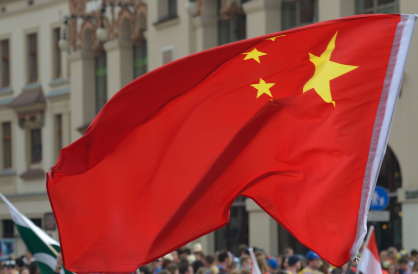Cardinal John Tong of Hong Kong has issued a “progress report” on the ongoing dialogue between the Beijing Government and the Vatican, claiming that the core issue of disagreement regarding the appointment of China’s bishops is close to resolution.
The Vatican insists that the Pope has the final say on who becomes a bishop, while the Communist Government in Beijing claims final jurisdiction over these appointments.
Differences on the question have led – amongst other factors - to the evolution of two Catholic “Churches” in China, separate in some ways but connected in others. The unofficial or “underground” Church accepts the primary authority of the Pope, and the official or “Patriotic” Church (the CCPA) recognises the final authority of the Communist Government in Beijing.
According to Cardinal Tong, in his article dated 25 January but made public this week, “after several rounds of dialogue, a preliminary consensus has reportedly been reached, and that will lead to an agreement over the appointment of bishops”.
However, while the tone of the cardinal’s communication is optimistic, it is still vague on the detail of what this consensus amounts to.
Both the unofficial and the official communities of the Church in China “are actively seeking and expressing complete communion and unity with the universal Church”, says Cardinal Tong. “Thus, even though some bishops have been ordained without the permission of the pope, they still make every effort to explain to the pope afterwards and ask for his understanding and acceptance.”
This is a shift of mood rather than substance. But Cardinal Tong continues: “The dialogue between China and the Holy See implies that changes have already taken place in Beijing’s policy on the Catholic Church. It will now let the pope play a role in the nomination and ordination of Chinese bishops. Beijing will also recognise the pope’s right of veto and that the pope is the highest and final authority in deciding on candidates for bishops in China.”
While the description of the pope as the “highest and final authority” appears to address the core issue of episcopal appointments in a way the Vatican could accept, the preceding sentence refers to Beijing “letting” the pope play a role in the nomination and ordination of bishops, as if its own authority is paramount.
Cardinal Tong clearly sees this difficulty and in his “progress report” refers to the “imperfection” of the arrangements currently under discussion.
“The choices in front of us are either to embrace the essential freedom now and become an imperfect, but true Church, then struggle for complete freedom in the hope of moving towards a perfect Church, or we give up essential freedom and have nothing at all, and then wait for complete freedom—but no one knows when this will ever happen,” he insists.
The way forward, in his opinion, is clearly to embrace a “healthy realism” at this stage. “The moral principle of the Church teaches us to choose the lesser of two evils. Therefore, under the teaching of the principle of healthy realism that Pope Francis teaches us, it is clear which path the Catholic Church in China ought to take,” he states categorically.
As for the two “Churches”, “from now on, there will be no more the crisis of a division between the open and underground communities in the Church in China”, he says. “On the contrary, these two communities will gradually move towards reconciliation and communion on the aspects of law, pastoral care and relationships. The Church in China will work together to preach the gospel of Jesus on the soil of China.”
Only forthcoming official announcements, by the Holy See and Beijing, will show whether this optimism is well founded.





 Loading ...
Loading ...
What do you think?
You can post as a subscriber user...
User Comments (0)